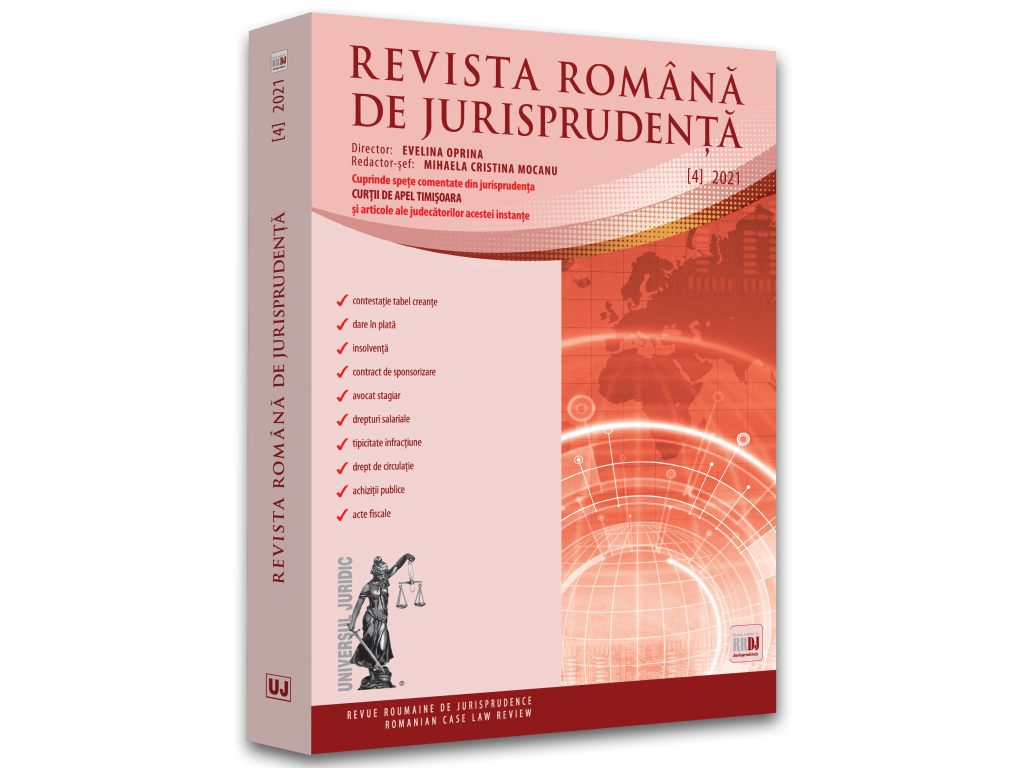Specific legal regime of the agency contract. Delimitation from the individual employment contract. The pecuniary component specific to the agency contract
DREPTUL MUNCII ŞI SECURITĂŢII SOCIALE
Abstract
At the time of the birth of the legal relationship, the regulatory context to which the institution of the agency contract is subject was clearly outlined following the adoption of GEO No 109/2011 on corporate governance of public companies. Through the law's intervention in the normative content of the ordinance analysed [Article 21(4) and (5) of GEO No 109/2011], the remuneration that the head of the autonomous company may receive has been precisely regulated, and the parties cannot deviate from the value limits imposed by the law.
There is no similarity between the legal relationships established on the basis of the agency contract and the legal employment relationships, a conclusion which also emerges from the jurisprudence of the Constitutional Court developed in the verification of the constitutionality of certain legal provisions contained in GEO no. 79/2008 on economic and financial measures at the level of certain economic operators, a normative act which regulated, prior to GEO no. 109/2011, the management system of economic operators in a regulation close to the current one.
Given the public component of the agency contract which derives from the status of the members of the Autonomous Company, legal persons governed by public law, the signatory parties to the agency contract may not deviate by agreement from the mandatory legal requirements governing the level of remuneration due to the director of the Autonomous Company. The contractual note contained in Art. 5 letter A(3) and (4) of the agency contract concerning the entitlement of forestry staff to rights does not relate to salary rights, but to the plaintiff's entitlement to the other rights provided for in favour of forestry staff, including those with a property component.
The legal regime applicable to the agency contract cannot be characterized by reference to the specific provisions of labour law but by reference to the Civil Code.








